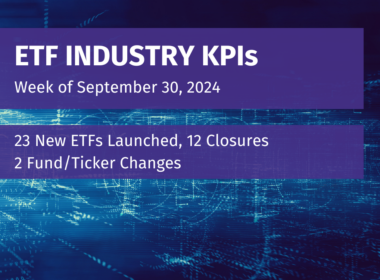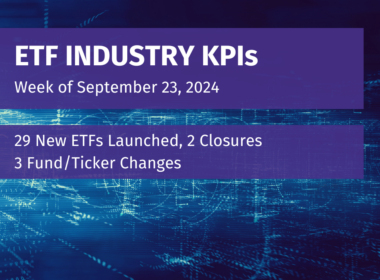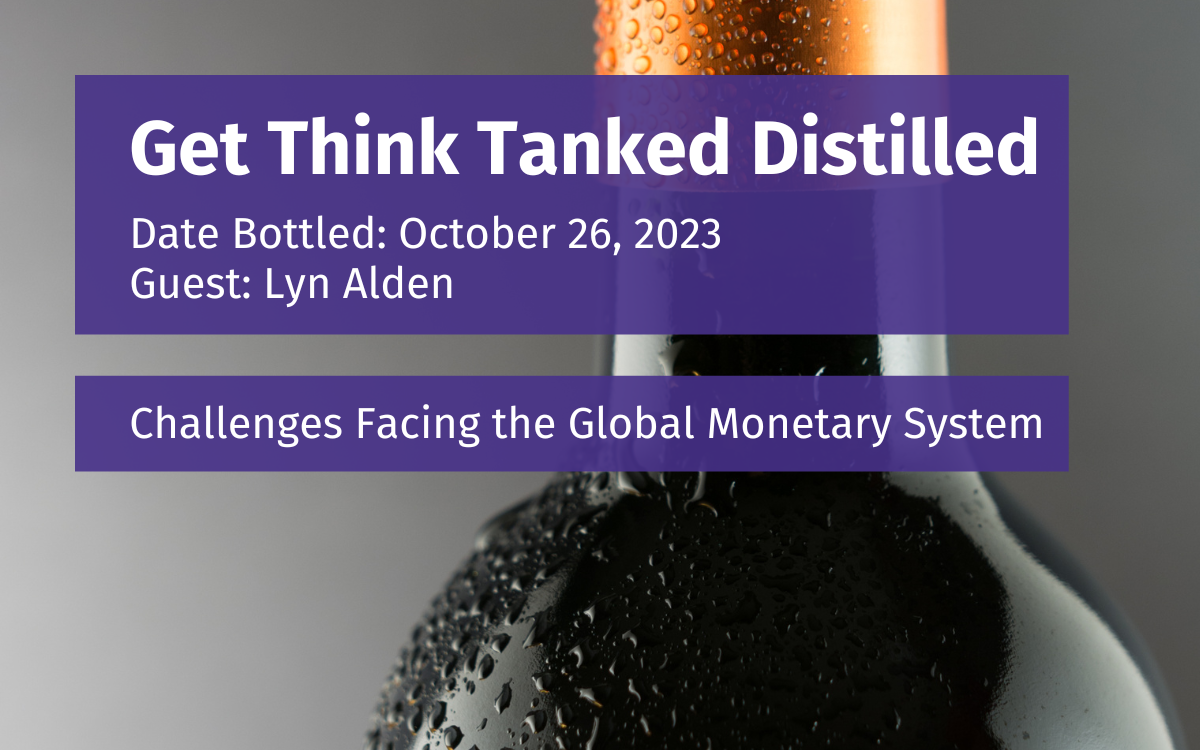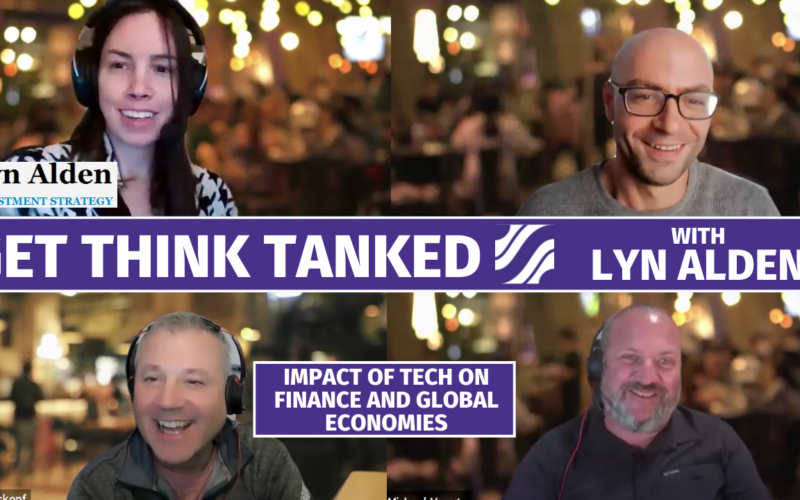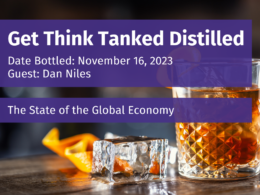Lyn Alden is a well-known investment strategist covering the macroeconomic environment and the cryptocurrency space. Her most recent book titled Broken Money dives into the history of global currency and attempts to answer the fundamental question, “what is money”. She joins the ETF Think Thank to discuss her book, how the U.S. dollar has evolved over its history, and the current challenges facing the global monetary system.
The focus of the book revolves around the theme of how technology is changing the monetary system. For example, settlement speeds have gotten extraordinarily fast and that’s changed the entire landscape of finance, which has obviously had ramifications for the emergence of the crypto space. She says that she reached the point where you want to write the story when you feel you can’t not write it. She notes that writing does not necessarily come easy given her background in math & science, but she’s found financial writing easier to do.
In terms of the dollar’s evolution over time, Britain used to have the original world reserve currency, but the network effect makes it a very long process for reserve currencies to change. As the U.S. economy developed, consumers and traders found that the amount of dollars in the system made it easier to conduct settlement terms when the dollar was the foundation for all of it. In order for the U.S. dollar to maintain its status as the world reserve currency, we need to ship our currency out to the world. We now have a deeply negative international investment position because of the cost of maintaining the current system, which results in incredible trade deficits.
In terms of where we are in the current cycle, Alden notes that we just exited a 40-year period of falling interest rates and rising stock prices, which fed off each other. We also had a three decade “peace dividend”, which included opening up previously closed-off markets, such as Russia and China, to the world. When you hit 0% on interest rates, however, you have rising debt, but flat to falling interest expense, which is inflationary. If interest rates get stuck in a sideways and choppy pattern, then equity valuations probably get stuck in a similar range. That probably means a poor decade of returns ahead in real terms.
Alden says that she likes the potential of the BRICS countries, India and Brazil in particular because they complement each other well. India is a commodity importer. They haven’t grown as quickly as China, but they haven’t racked up the debt either. Brazil is a commodity exporter and it’s attractively valued. Commodity exporters should do well going forward. Select emerging markets doing well in demographics and/or commodities and manageable debt should be more interesting. China gets a lot of attention due to the real estate bubble, but their auto exports have taken off and compete with Japan. They’re lower end vehicles right now, but they’re popular in places, such as Egypt. They’re also developing and manufacturing airplanes.
Other key takeaways:
- Looking forward, Alden sees technology resulting in 1) more competition between money & markets and 2) the continued emergence of cryptocurrency. Countries mostly have strong walls up in terms of currency transfers. Stable coins could be offshore bank accounts for the middle class. That helps take some of those walls down and makes money transfer much easier.
- Alden says that we’re currently seeing some rotation out of equities and into bonds. The shock and awe part of the bond selloff is probably behind us, but the bottom may not yet be in. We could see some type of intervention like we saw with the UK gilt market and that’s when you get more of an inflationary outcome. TIPS owners would do well in this scenario. It ends with stability in the bond market, if not a rally.
- Negative demographic trends are another factor that will impact the global currency market. Alden says that Japan’s aging alone is disinflationary for them because of negative trends. If the whole world ages together, it creates a different environment.
- What will be the next catalysts on the inflation front? Entitlement reform will be deflationary. The development of technology and AI will also be disinflationary. Energy and the need for battery metals would be inflationary, but these things tend to go in cycles, there’s not been a lot of investment and there tends to be a long ramp-up period. Infrastructure will also be inflationary.
- Large deficits will be with us for many years. The U.S. is currently spending roughly $900 billion annually in interest expense. With big deficits and higher rates, that could move up to $1.6-1.7 trillion.
You can watch a replay of this virtual happy hour on our YouTube channel here. While there, subscribe to our channel to stay up to date on our latest content.
Disclosure
All investments involve risk, including possible loss of principal.
The material provided here is for informational purposes only and should not be considered an individualized recommendation or personalized investment advice. The investment strategies mentioned here may not be suitable for everyone. Each investor needs to review an investment strategy for his or her own particular situation before making any investment decision.
All expressions of opinion are subject to change without notice in reaction to shifting market conditions. Data contained herein from third party providers is obtained from what are considered reliable sources. However, its accuracy, completeness or reliability cannot be guaranteed.
Examples provided are for illustrative purposes only and not intended to be reflective of results you can expect to achieve.
The value of investments and the income from them can go down as well as up and investors may not get back the amounts originally invested, and can be affected by changes in interest rates, in exchange rates, general market conditions, political, social and economic developments and other variable factors. Investment involves risks including but not limited to, possible delays in payments and loss of income or capital. Neither Toroso nor any of its affiliates guarantees any rate of return or the return of capital invested. This commentary material is available for informational purposes only and nothing herein constitutes an offer to sell or a solicitation of an offer to buy any security and nothing herein should be construed as such. All investment strategies and investments involve risk of loss, including the possible loss of all amounts invested, and nothing herein should be construed as a guarantee of any specific outcome or profit. While we have gathered the information presented herein from sources that we believe to be reliable, we cannot guarantee the accuracy or completeness of the information presented and the information presented should not be relied upon as such. Any opinions expressed herein are our opinions and are current only as of the date of distribution, and are subject to change without notice. We disclaim any obligation to provide revised opinions in the event of changed circumstances.
The information in this material is confidential and proprietary and may not be used other than by the intended user. Neither Toroso or its affiliates or any of their officers or employees of Toroso accepts any liability whatsoever for any loss arising from any use of this material or its contents. This material may not be reproduced, distributed or published without prior written permission from Toroso. Distribution of this material may be restricted in certain jurisdictions. Any persons coming into possession of this material should seek advice for details of and observe such restrictions (if any).




